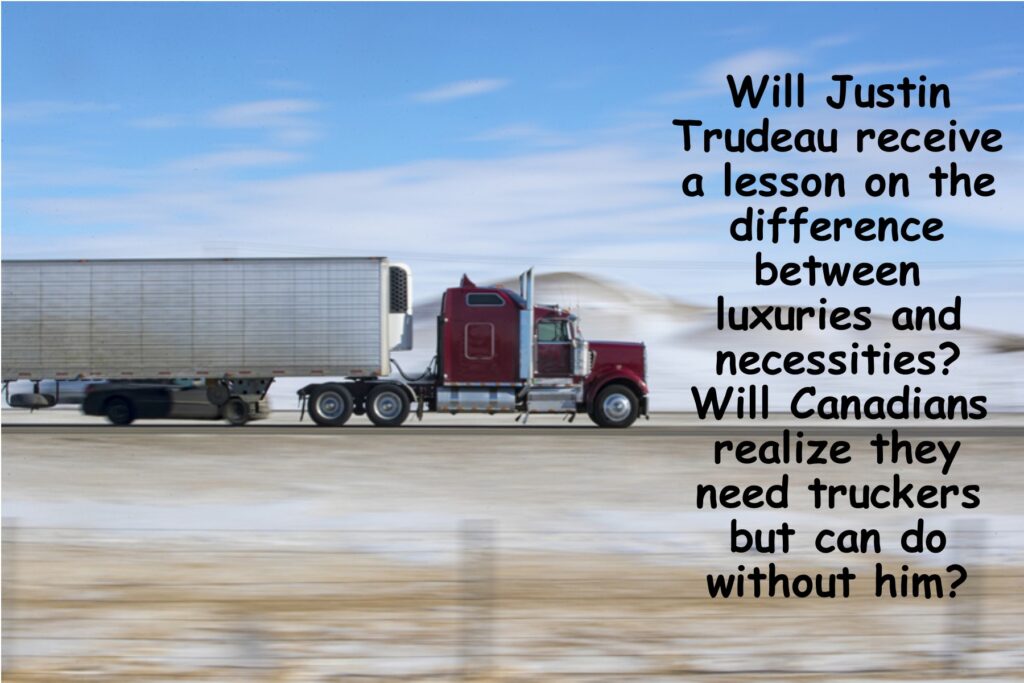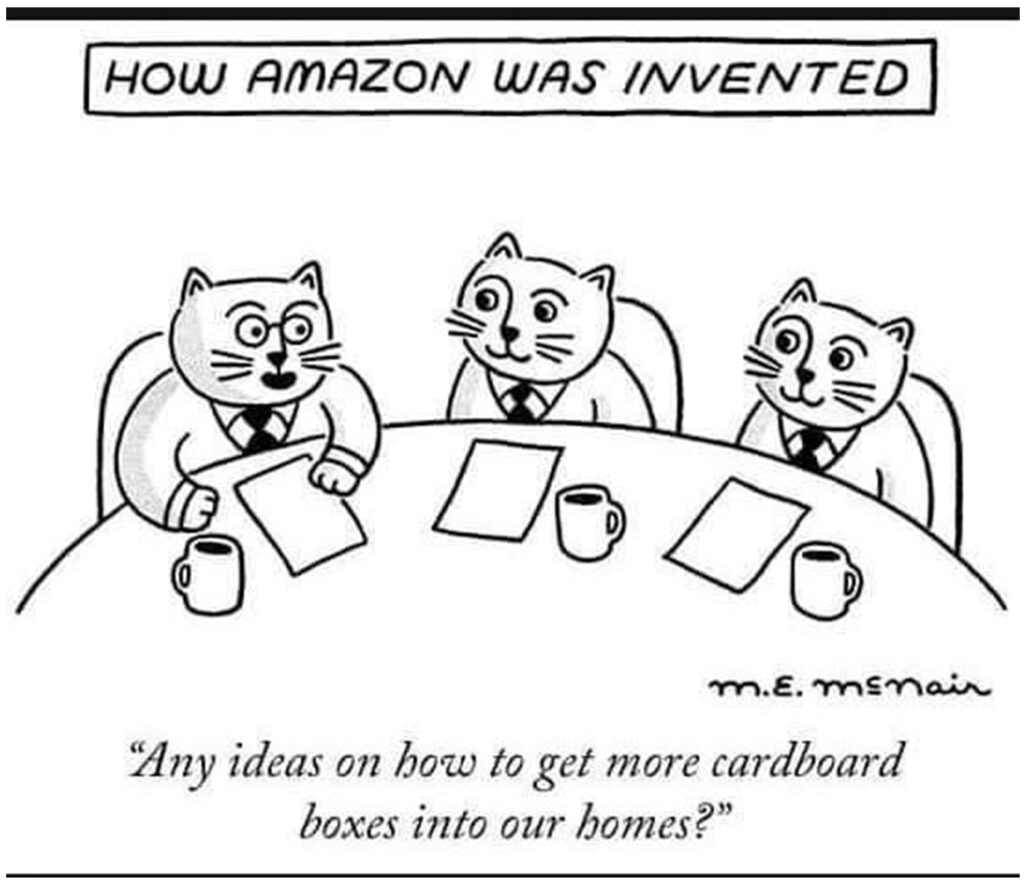
Do you work in a “service” trade? That is: rather than making or enhancing physical goods, do you merely provide a convenient service to others, sparing those others the chore of doing whatever it is for themselves? No need to be shy about it. Many Americans are in that category.
The “service economy” is largely a provider of luxuries. A luxury, colloquially speaking, is something you could forgo without impacting your ability to survive. You might not want to do without it – you might regard yourself as poorer for having lost it – but you’d get by even so.
There’s a gray area between luxuries and necessities, of course. For example, many of us couldn’t keep our homes warm during the winter without the services provided by heating technicians. We don’t know how to service our furnaces. The knowledge of how they work and what they require to keep working has become a specialty of sorts. It isn’t secret, mind you, just not widely studied or acquired.
Some services are pure luxuries. The folks at the fast-food joint who make hamburgers for you. The guys who deliver stuff from nearby stores right to your door. The gentleman who fills out your 1040A for you. You could do all that yourself, couldn’t you? Except for those who are physically or intellectually handicapped or wearing ankle monitors, of course.
When times get tough, people cut back on their purchases of luxuries. Sometimes whole industries collapse for that reason. People who labor in those industries can have it very tough indeed, especially if they don’t have a second bow for their fiddles.
Might you be one such?
Things sometimes “move” – in people’s minds, at least – from the luxury to the necessity category. Consider Internet search engines, for example. Twenty-five years ago the phrase was understood by a handful of computer scientists. Today, if you were to need a phone number that you don’t currently have, how would you go about getting it? Phone companies no longer publish phone books, and people mostly don’t memorize phone numbers these days. Lack of access to a good search engine would be a major impediment.
Now consider the Internet itself. The ‘Net makes so many kinds of commerce and communication effortless today that society itself would totter if we were deprived of it. I sell my novels over the ‘Net, with the help of Amazon. The C.S.O. does 80% of her work via the ‘Net. And may God help us if we were ever to run out of reading matter; we’d have to get into the car and drive to a bookstore. Are there any bookstores remaining? For that matter, will the car still start?
Rich societies begin to lose the distinction between luxuries and necessities. It’s one of the unintended consequences of the division of labor, which is a great part of what makes a society rich in the first place. There is no escape:
“Our clan had heavy-lift capacity at one point, didn’t it?”
She nodded. “Yeah, but we sold the plane when Adam’s dad set up shop here. Charisse said she was happy to get rid of it. It made more sense to hire it out, so we wouldn’t have to maintain a plane and train pilots.”
She glanced at the entrance to Morelon House. The old mansion looked as sturdy as ever. It presented an appearance of immutable strength to all who saw it. Yet it had begun to seem to her that the clan had undermined that strength in several ways, with several decisions. None of them had been fatal; indeed, when each was made, it had appeared to be the obvious choice. Yet in combination, they had rendered Clan Morelon massively dependent upon the wills and skills of a multitude of outsiders…persons who might not be as available or dependable as one would hope.
—That’s the downside of the division of labor, Al.
Yeah. I can see that, Grandpere. But how could we have avoided it?
—By resisting all the temptations to specialize and to make use of specialists. By purchasing absolute self-sufficiency at the price of economic advantage. Which, incidentally, no clan or society known to history has ever managed to do.
The incentives are too strong, aren’t they?
—Judge for yourself, dear. Put yourself in Charisse’s place at the point when Jack Grenier moved into the area and started offering his services around. Would you have done as she did, knowing only what she did at the time?
Probably. If there’s a lesson in this—
—If there is, Al, no one has ever drawn it. The division of labor is the one and only path toward general prosperity. It can go to an incredible depth. A frightening depth. And it is utterly reliant upon the character and good will of the specialists. Let one critical specialty be corrupted by political forces, or conceive of a grudge against some other group, or even decide that it can rape its customers without fear of reprisal, and the destruction spreads faster than anyone can act to check it.
Judge for yourself.
Canadian prime minister Justin Trudeau has arrogated to himself a set of “emergency powers” that include, de facto, the absolute control of the nation’s banks. He plans to use that power to strangle the Freedom Convoy that has expressed the massing dislike of his mandates and decrees. That would seem to put the truckers, and whatever institutions have backed their play, in a tight spot.
It does, really. There’s no point to trivializing it. But it might just cause a showdown between one set of seeming necessities – digital access to one’s savings – and another, far more material set – the ability to move goods from point to point. The truckers could cut Trudeau’s legs out from under him simply by going on a sit-down strike. If he thought the Honkening was an annoying disparagement of his rule, what will he think of the paralysis of Canadian commerce in toto? What will he say to the captains of industry who come knocking at his door, demanding relief?
If the truckers can hold out for two weeks, they could bring down the Trudeau government. Whether they can, I cannot say. But I’d love to see the proposition tested in reality…and not just among our cousins to the north. It might remind us of the relative importance of things – and about what we’d really, truly rather not do without:
















3 comments
Another obvious result of Trudeau’s action is the undermining of trust in the banks. After all, the entire reason banks exist in the first place is to place your monetary assets out of the reach of thieves. When the banks themselves become the thieves, people will move money out of them.
We might be able to conduct some degree of business without access to cards or cash (the more provident of us). The government-dependent are completely at the mercy of that entity; others can, and have, used some combination of a well-stocked larder and tools, available cash/ability to trade services for goods, and general character to be trusted for short durations with use of IOUs.
Extended family is also another asset. You might be in danger of starving, but have relatives or close, trusted friends that you can call upon.
Unfortunately, there is a too-sizable number of untrustworthy, improvident individuals, whose only recourse in a pinch would be to try to take the items from others by force. So, in the short term, an unpleasant situation.
https://rau-tng.blogspot.com/2022/02/a-choice-that-will-show-just-how.html